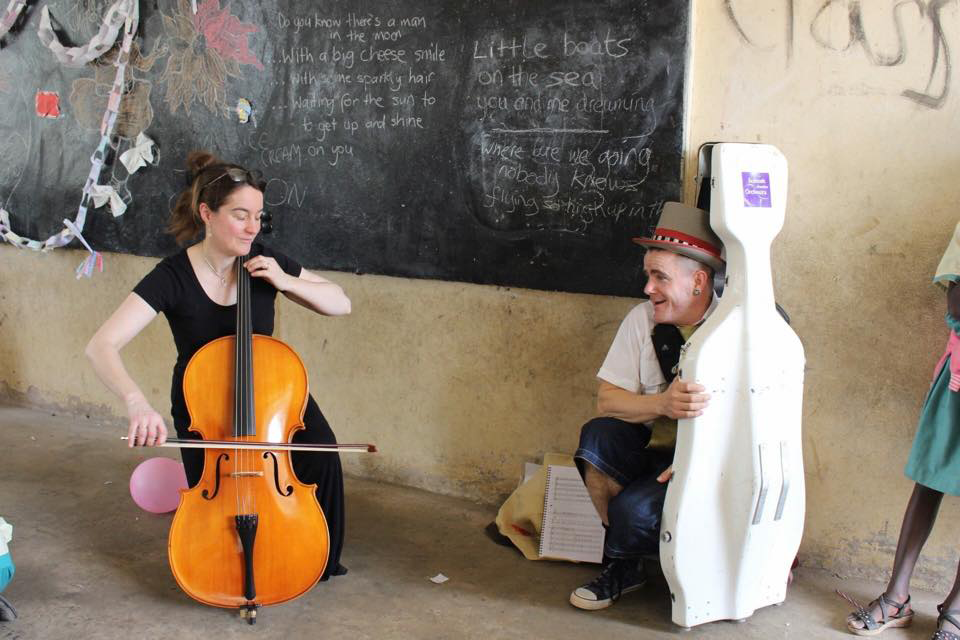 In the early 1990’s, it became clear that music needed to be more accessible across the community. Thus, Professor Nigel Osborne set up Music in the Community in 1991.
In the early 1990’s, it became clear that music needed to be more accessible across the community. Thus, Professor Nigel Osborne set up Music in the Community in 1991.
Music in the Community aims to inform the scientific understanding and practical application of music as an educational, therapeutic, artistic and social tool. Students undertake a two year programme of training, which includes a supervised weekly placement in a community setting. In recent years students have also taken part in new site specific music theatre productions composed and created by course director Dee Isaacs.
Over the past 12 years, over 8 music theatre projects have been devised and managed by Music in the Community at Edinburgh’s Royal Botanic Gardens involving large numbers of primary school children from areas of significant deprivation within the City of Edinburgh. Other projects have been situated in landmark sites such as the National Museum of Scotland, Talbot Rice Gallery and Old College Quad. We know from our feedback that this prolonged engagement with the arts as a tool for learning will help the children to gain confidence and self-esteem, become better able to concentrate and apply themselves across all learning areas, and to express themselves and communicate with others more effectively.
 Music in the Community is also committed to a research project in The Gambia, West Africa and has now taken 4 groups of staff and music students to work at Deeper Life School in Kotu. Here the focus is on the links between music and development of language/literacy skills as well as introducing the concept of active learning and the benefits of using the arts across the curriculum.
Music in the Community is also committed to a research project in The Gambia, West Africa and has now taken 4 groups of staff and music students to work at Deeper Life School in Kotu. Here the focus is on the links between music and development of language/literacy skills as well as introducing the concept of active learning and the benefits of using the arts across the curriculum.
Music in the Community provides students with unique opportunities and challenges from which they undoubtedly learn more about themselves and the world we live in. Their active role in the delivery of workshops enables them to develop leadership, teaching, organisational and group work skills. Such skills are also gained through observation of their peers, the class teachers, and the visiting community music experts from the University.
Through this process confidence appears to have been built, particularly in regard to working with large numbers of young children, but also in terms of working with adult professionals. The evidence also shows that participation in the delivery of such a large scale community music project allows students to increase their repertoire of musical techniques, activities, and games, giving them the tools to become more effective music educators in the future.
Read more about Music in the Community via the IAD Case Study wiki.
See photos from the Edinburgh’s Royal Botanic Gardens projects and work in The Gambia on Music in the Community’s Facebook page.



